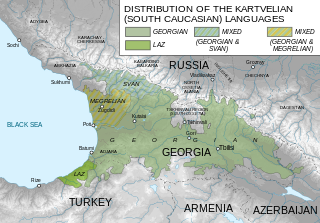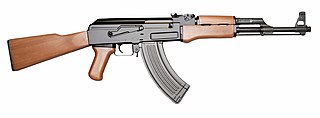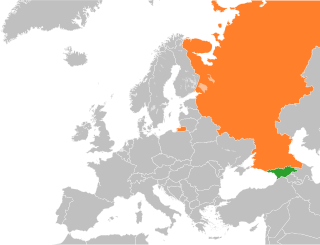The Patriot camps (Georgian :პატრიოტული ბანაკი) are state-sponsored summer camps for the teenagers of Georgia.

Georgian is a Kartvelian language spoken by Georgians. It is the official language of Georgia. Georgian is written in its own writing system, the Georgian script. Georgian is the literary language for all regional subgroups of Georgians, including those who speak other Kartvelian languages: Svans, Mingrelians and the Laz.

A summer camp or sleepaway camp is a supervised program for children or teenagers conducted during the summer months in some countries. Children and adolescents who attend summer camp are known as campers. Summer school is usually a required academic curriculum for a student to make up work not accomplished during the academic year, whereas summer camps can include academic work, but is not a requirement for graduation.

Georgia is a country in the Caucasus region of Eurasia. Located at the crossroads of Western Asia and Eastern Europe, it is bounded to the west by the Black Sea, to the north by Russia, to the south by Turkey and Armenia, and to the southeast by Azerbaijan. The capital and largest city is Tbilisi. Georgia covers a territory of 69,700 square kilometres (26,911 sq mi), and its 2017 population is about 3.718 million. Georgia is a unitary parliamentary republic, with the government elected through a representative democracy.
Contents
The Patriot camps were initiated by the president of Georgia Mikhail Saakashvili in 2005. Each year tens of thousands of young Georgians attend summer camps for ten days, with expenses paid by the Georgian government. Participation is voluntary. In 2007 seven patriot camps will operate.

The President of Georgia is the constitutional Head of State of Georgia as well as the Supreme Commander-in-Chief of the Defense Forces. They represent Georgia in foreign relations. The constitution defines the presidential office as "the guarantor of the country’s unity and national independence."
The declared aim of the project is to raise national pride in young Georgians and to counter social problems of the country. The participants are from poor backgrounds aged 15 to 20. Activities in the camps focus on sporting and cultural events. President Saakashvili, the initiator of the program, himself a former pioneer, rebutted any parallels to Soviet Young Pioneer camps, saying that this is as different as it can get. [1]

The Soviet Union, officially the Union of Soviet Socialist Republics (USSR), was a socialist state in Eurasia that existed from 1922 to 1991. Nominally a union of multiple national Soviet republics, its government and economy were highly centralized. The country was a one-party state, governed by the Communist Party with Moscow as its capital in its largest republic, the Russian Soviet Federative Socialist Republic. Other major urban centres were Leningrad, Kiev, Minsk, Alma-Ata, and Novosibirsk. It spanned over 10,000 kilometres east to west across 11 time zones, and over 7,200 kilometres north to south. It had five climate zones: tundra, taiga, steppes, desert and mountains.

Young Pioneer camp was the name for the vacation or summer camp of Young Pioneers. In the 20th century these camps existed in many socialist countries, particularly in the Soviet Union.
The patriot camps have been criticized for featuring informal military training (e.g., firing AK-47 rifles). [1] Georgia's opposition has also criticized the camps for Saakashvili through them trying to gain political scores among the young people. Each year upon closing of the camps a large meeting is organized in the Palace of Sports, with Saakashvili addressing the Patriots.

The AK-47, officially known as the Avtomat Kalashnikova, is a gas-operated, 7.62×39mm assault rifle, developed in the Soviet Union by Mikhail Kalashnikov. It is the originating firearm of the Kalashnikov rifle family.














